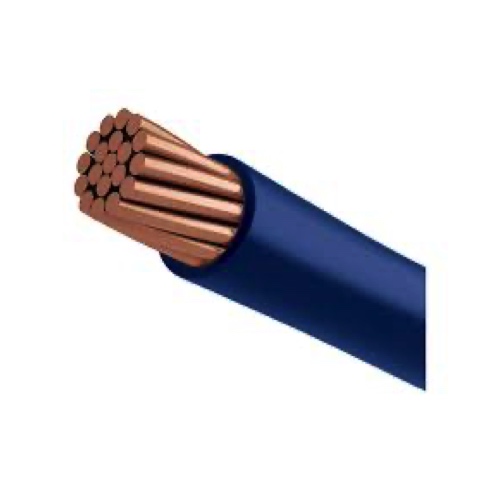TFFN Wire

Thermoplastic Nylon Fixture (TFFN) wire is most often used as fixture wire or for machine tool wiring in various applications. This wire is known for its nylon jacket and is primarily recommended for use in dry locations because it is a specific type of wire that is made and used in a specific way.
TFFN wire is generally used in control circuits and branch circuits in accordance with the National Electrical Code. It is found in many applications, such as machine tools and lighting fixtures. While it is quite similar to THHN wire, the two types of wire differ in their environments of use. THHN wire is very heat resistant and can be employed in both wet and dry locations, but TFFN wire is limited, as far as wet and dry goes, to just dry locations.
TFFN wire has some advantageous properties in industrial applications involving oil and gas. These include the PVC insulation that gives it durability and resistance to moisture and heat. TFFN wires are available in several standard AWG sizes, allowing for compatibility with different electrical requirements and appearing in installations in different areas.
More Information about TFFN Wire
TFFN vs THHN
TFFN and THHN are both types of thermoplastic wire, but TFFN is constructed to be more flexible. This makes it the better choice to work with during installation, especially if your wire is likely to be bent in several places or just needs to navigate a congested space. Usually, you might encounter TFFN wire as a stranded type (meaning it is made from several smaller wire strands bundled together). Stranded wire is essential when the application demands a lot of movement from the wire, like firing up an electric motor.
FAQs
What is the difference between THHN and TFFN wires?
While both THHN and TFFN wires are used in electrical installations, THHN is generally more robust and versatile, suitable for both wet and dry locations and for handling higher temperatures. TFFN is more specialized, primarily for dry locations, and tends to be more flexible, making it easier to install in tight spaces or intricate configurations.
What is THWN wire used for?
THWN wire stands for "Thermoplastic Heat- and Water-resistant Nylon-coated" wire. This type of wire is designed to be versatile and robust, capable of operating in both wet and dry environments.
What is the construction of appliance wiring material?
Appliance wiring material (AWM) typically consists of stranded or solid copper conductors insulated with thermoplastic or thermoset materials, designed for internal wiring of appliances and equipment.

